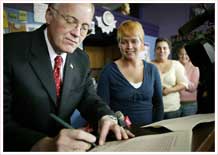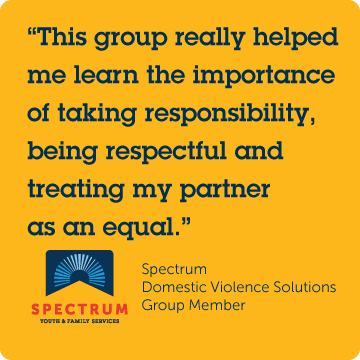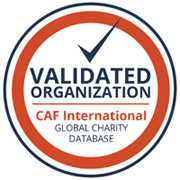In honor of Domestic Violence Awareness Month, we sat down with Colleen Nilsen, the director of Spectrum’s Domestic Violence Intervention and Prevention programs (VIPP), to ask her a few questions.
Beal St. George: First, could you describe Spectrum’s program for domestic violence intervention and prevention?
Colleen Nilsen: The program is called DV Solutions, or Domestic Violence Solutions. It is a 27-week-long, state-certified batterer’s intervention program for men who have been abusive and controlling to their female partners. So, the three questions that we ask men to think about and answer are:
a) Why do I do what I do?
b) What are the effects of what I do on my partner and family?
c) How can I do things differently?
And DV Solutions believes that men can choose to change their behavior.
BS: How do people end up in a DV Solutions program?
CN: The majority of our population, close to 97% of participants, is referred by the court. So men coming to us have been convicted of domestic violence-related crimes, and as part of their probation agreement conditions, it will be court-mandated to attend DV Solutions in the fourteen counties that we serve.
BS: What about the three percent who are not mandated to attend?
CN: Those participants may be referrals from the Department of Children and Families (DCF), or from other agencies, based on observations in the home, and sometimes people volunteer to participate.
BS: What is a common attitude or perception that participants in the group hold about coming to group?
CN: Unlike participants in counseling programs, these men aren’t seeking us out. But the point of having a group rather than individual counseling is that the participants learn a lot from each other and can support each other through the process. So we have to meet them where they’re at, walk them through the process, and nine times out of ten, by the end they’re glad they did it, they’ll say, “I wish I had this in high school,” and they learned something.
BS: So how does a DV Solutions instructor go about encouraging men to change this behavior?
CN: I think we all know when we’ve done something wrong, and as humans, we have a hard time being honest about things we’ve done. We all minimize, deny, and blame. It’s a common human reaction to guilt or shame. Our participants are no different. Once you understand that, it becomes easier to work with them. It’s a natural human reaction that we can all relate to. So our challenge is to get them past the minimizing, denying, and blaming. It’s such a shameful topic, so we make the effort to say, “We’re not judging you. We’re judging your behaviors clearly, and society judges your behaviors, but our job is to help you figure out why you did what you did and how you can do things differently.”
BS: Many people know Spectrum because it serves youth. Why is it important that Spectrum also offers DV Solutions classes?
CN: You know, the men in our groups all have children. The prevention part of this work for me is trying to teach men how to have healthy, safe family relationships so that their children aren’t growing up in homes where violence exists and so that they’re not perpetuating the cycle, because violence is a learned behavior. Youth who seek out help from Spectrum are often escaping homes where violence exists. You can’t deal with children without dealing with families. That’s not a sustainable solution.
BS: So for you, what is the most rewarding part of this work?
CN: There are so many rewarding things. Our staff has been with us for an average of seven years. People always ask me why we stay when it’s such hard work. But what keeps me here is the social justice aspect. I really want to see women treated equally and women and children in safe, respectful homes.
One in five women are sexually assaulted; one in four are beaten in their homes or by their partners, and I want to change that statistic. Sometimes, in our classes, you plant the seeds, and you don’t see the results until later. Guys will come back and say, “After a while I realized that you weren’t out to get me, and I really appreciate what you had to say, and you were right.” They’re grateful, and that feels good, too, but I feel passionate about making the world a better place to live in, particularly for marginalized and at-risk populations. That’s what drives us and what gives us energy. If I don’t do it, who’s going to?















